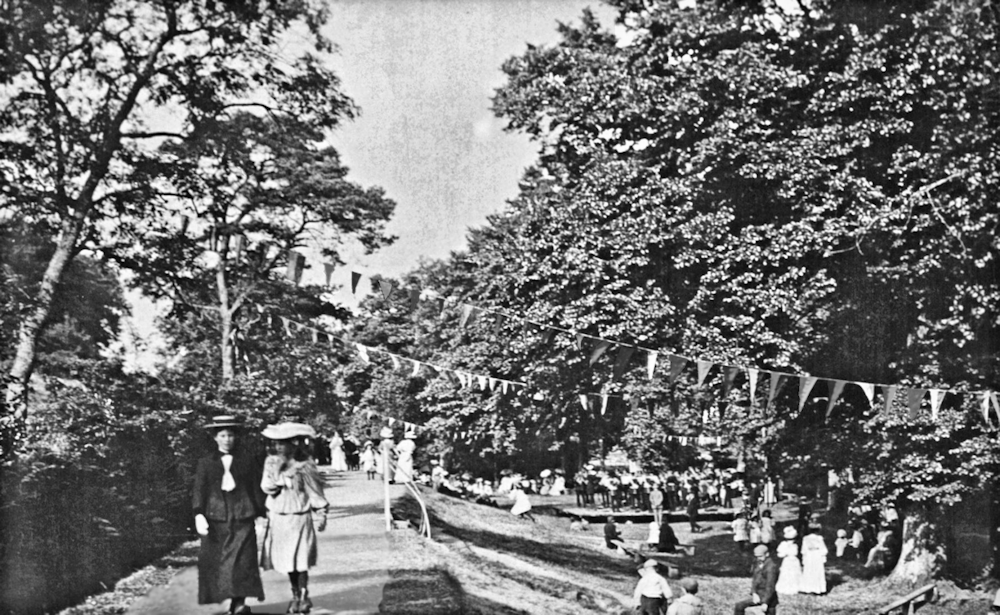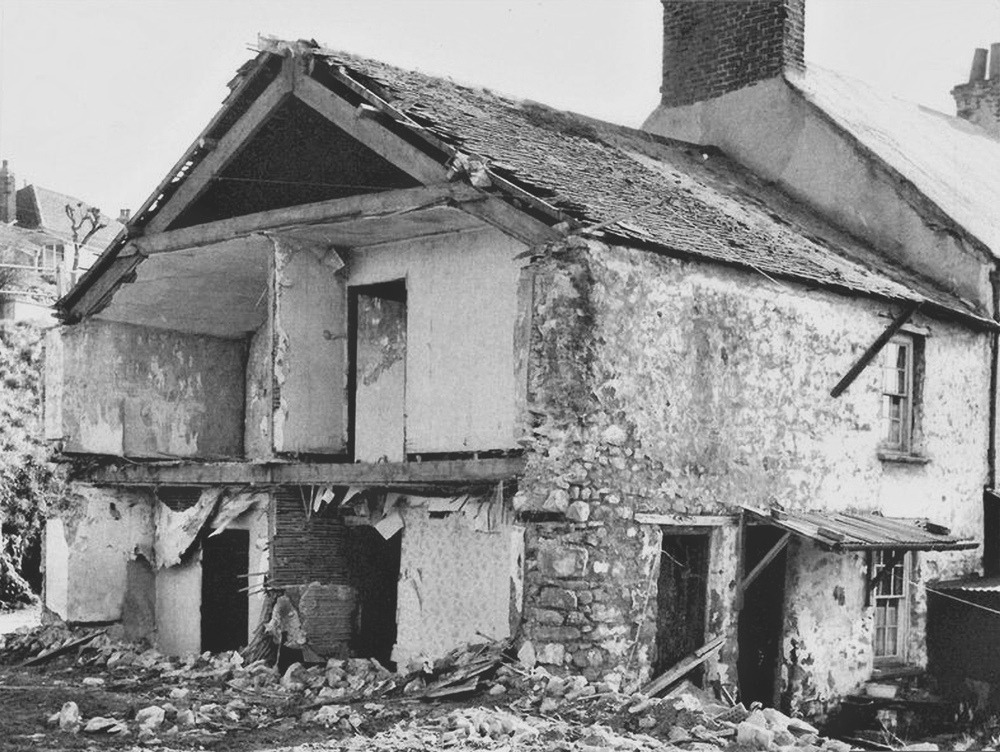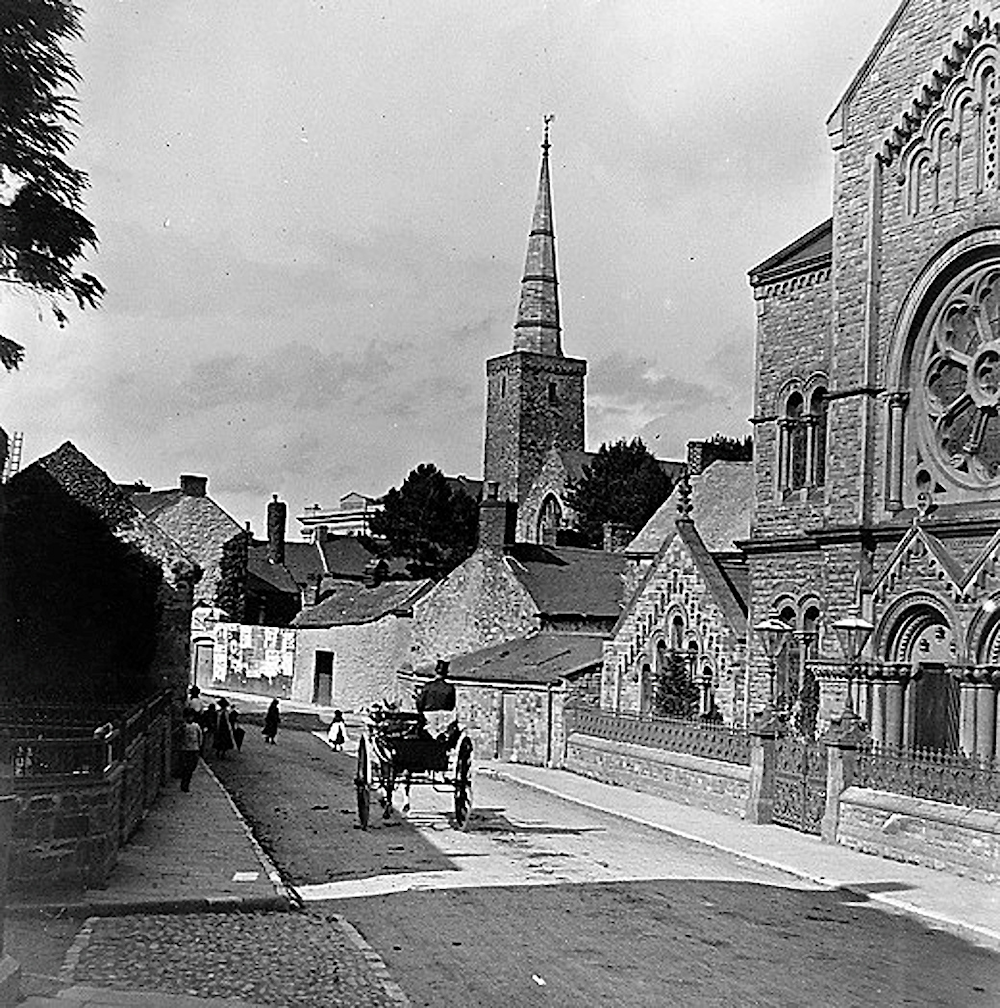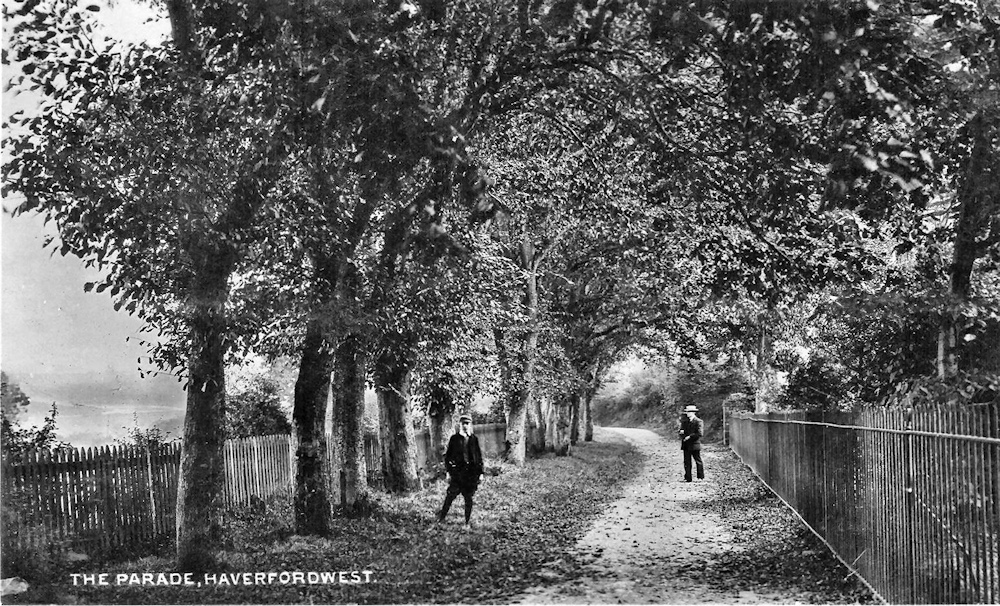Commercial and household gas was originally produced by heating coal to produce a gas which, after some purification could be burned to provide heat and light, in fact the first use for gas in Haverfordwest was to produce a fuel for the street lighting introduced in the 1830's.
The establishment of the gas works company predates the arrival of the railway which did not reach Haverfordwest until the end of 1853 so coal was transported by boat which landed it's cargo at the the company's private quay.
Although heaviily silted today the quay is still visiable just downstream for the rail bridge.
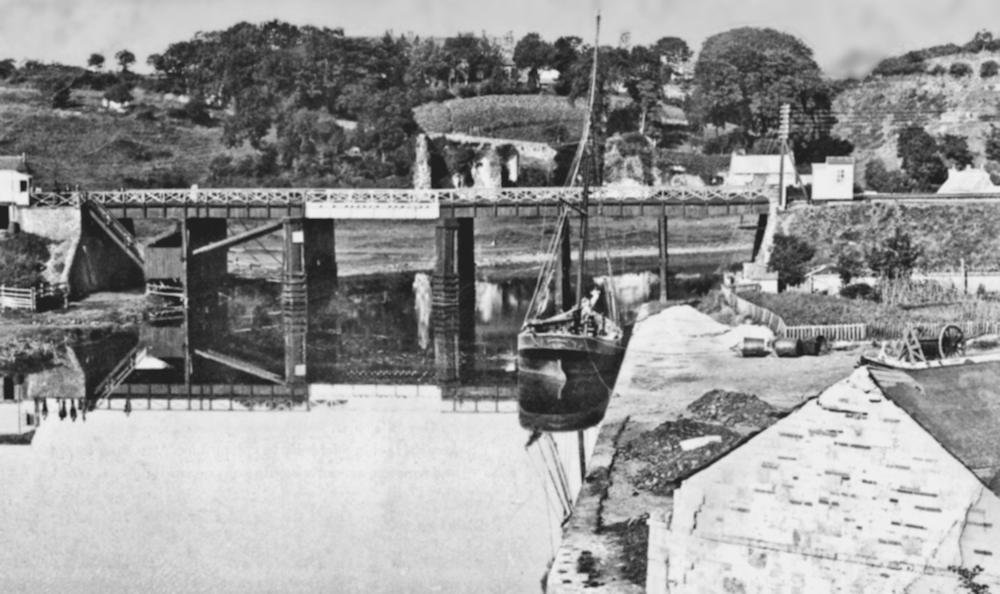
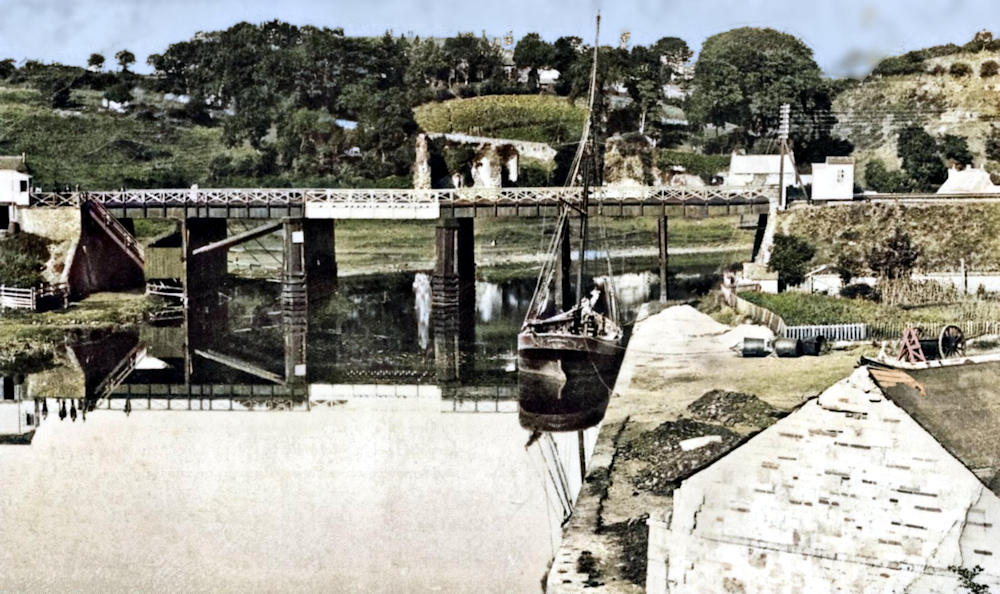
View full size black & white or colour
Greens Motors (now PMS) was a fixture on Salutation Square for decades. This photograph was probably taken in the late 1950's or early 1960's and shows the remnants of the Art Deco forecourt. Also in view is a Western Welsh double decker bus - in 1970 the Western Welsh sunsiduary became part of South Wales Transport
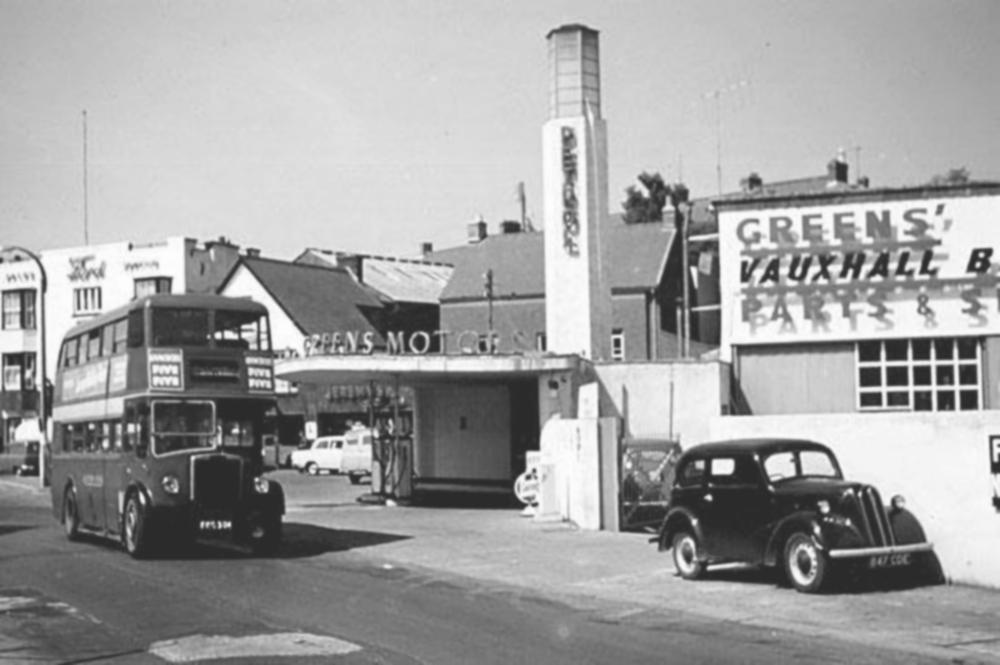
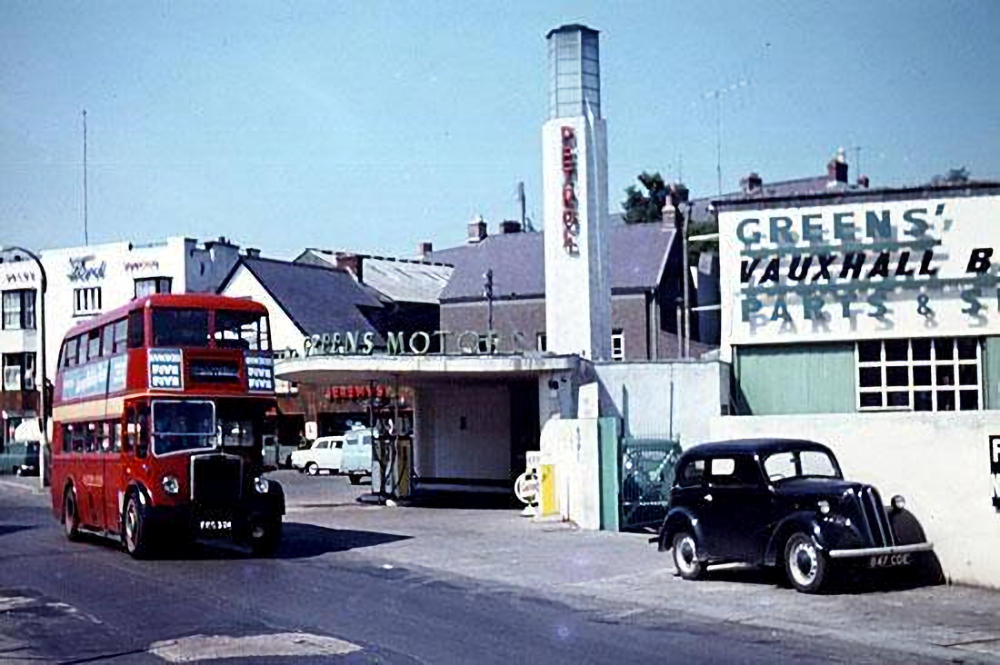
View full size black & white or colour
This view shows of Salutation Square shows the original location of the memorial remembering those who died in the Great War.
The portion of the roof you can see towards the top right of the picture is the Masonic Hall, all the other buildings have disappeared and the war memorial relocated.
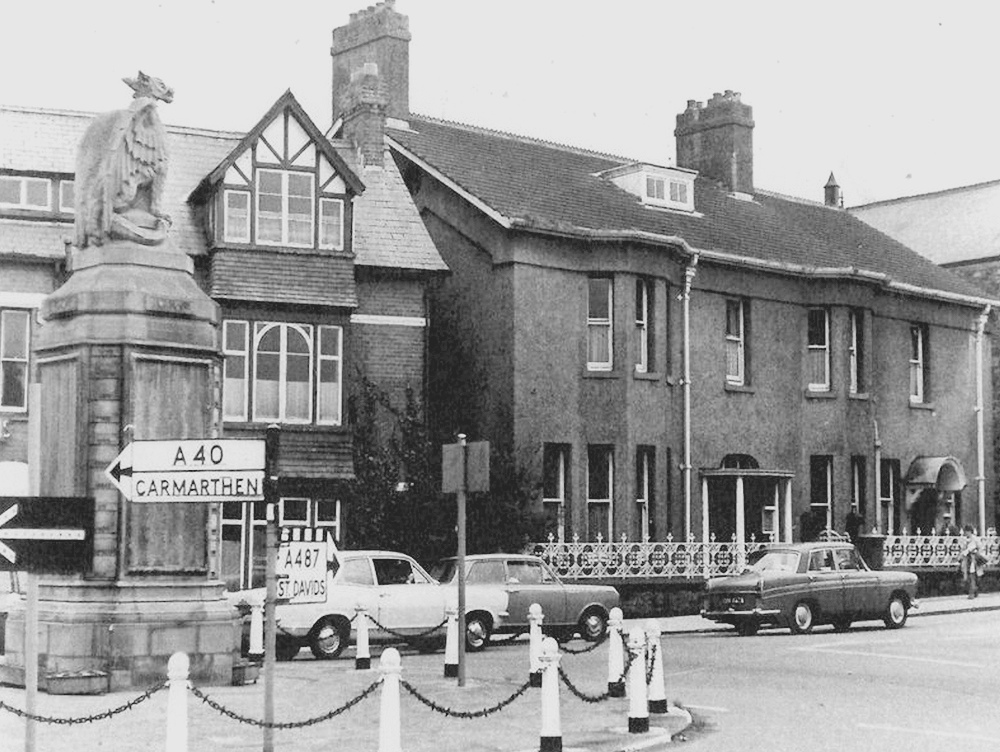

View full size black & white or colour
This view of Salutation Square was taken in the 1960's.
When the buildings were demolished the Gordon Bakery disappeared while the Electricity Board showroom moved to Bridge Street where it remained until the 1990's when SWEB closed their retail business in Haverfordwest.
The Bridge Street site is now occupied by The Victoria Bookshop.
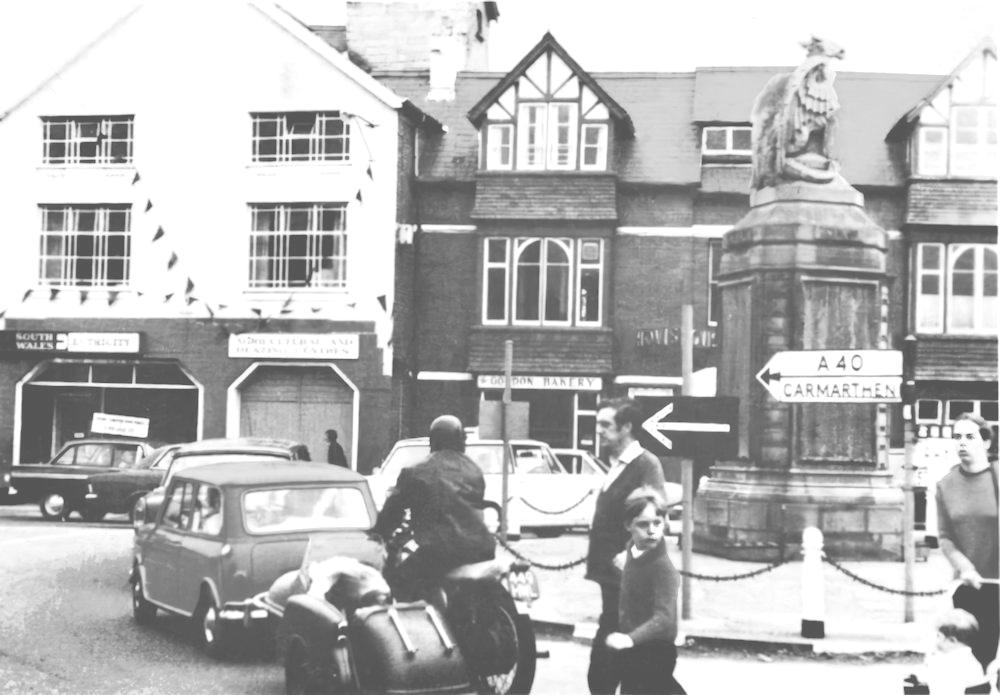
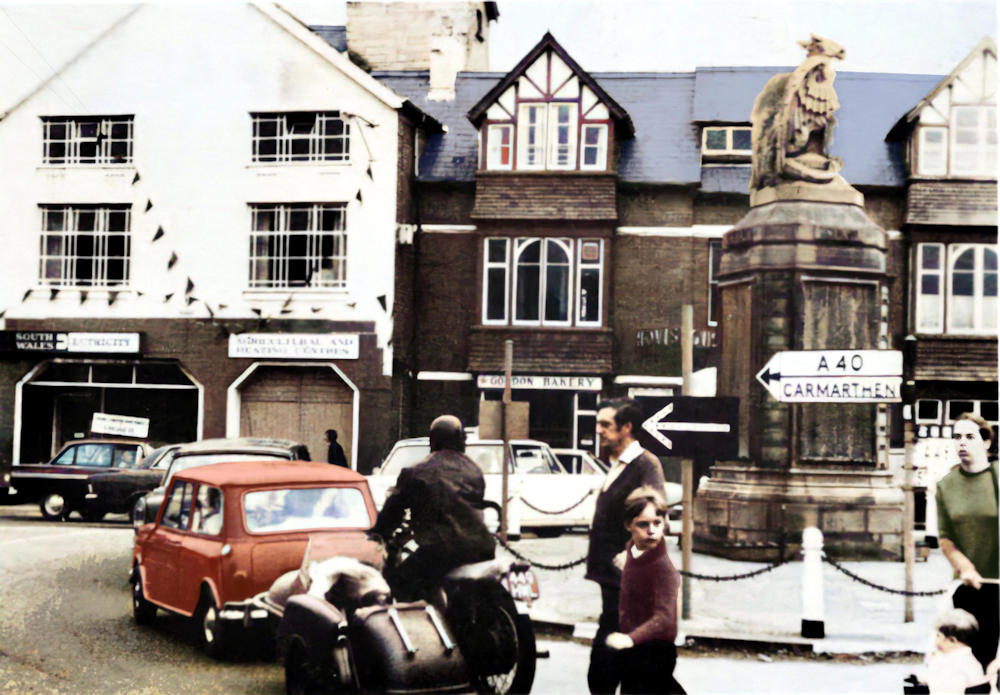
View full size black & white or colour
Of all the areas of Haverfordwest that have been subjected to the ravages of various planning decisions since the Second World War 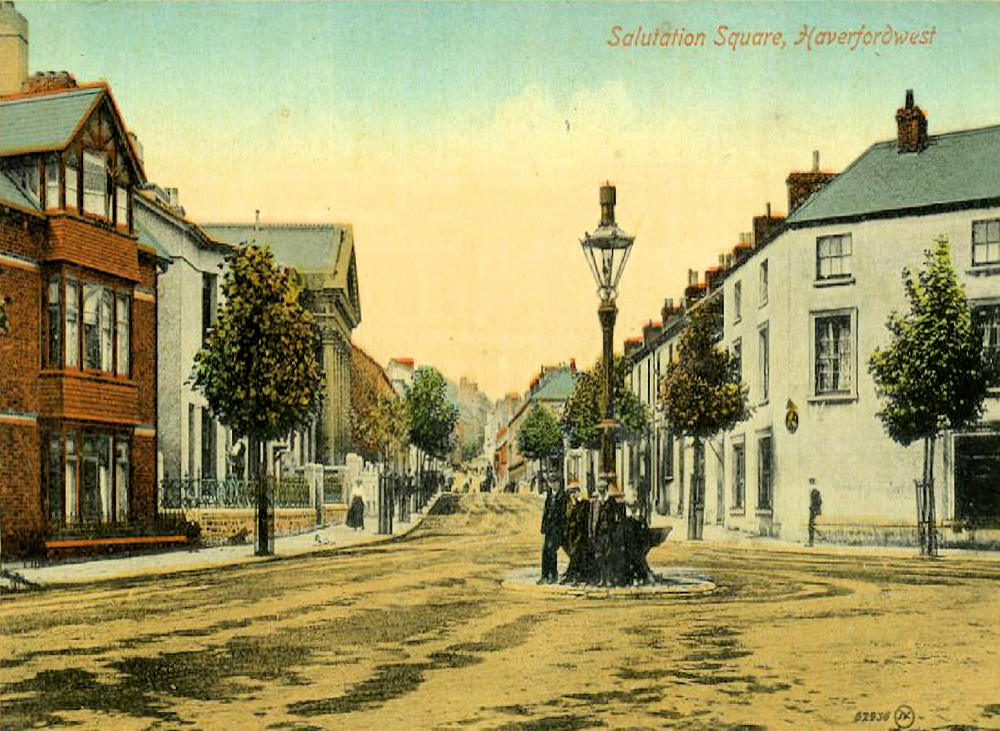 it is Cartlett Road and the adjoining Salutation Square that have suffered the most. These have all but disappeared with the County Hotel (formerly the Salutation Hotel) the only recognisable landmark remaining.
it is Cartlett Road and the adjoining Salutation Square that have suffered the most. These have all but disappeared with the County Hotel (formerly the Salutation Hotel) the only recognisable landmark remaining.
The greatest changes to the area resulted from the decision in the 1970’s to ease the flow of traffic to Milford Haven by the construction of the Southern bypass and in 1980’s to solve congestion problems with Fishguard traffic with the creation of Sydney Rees Way.


